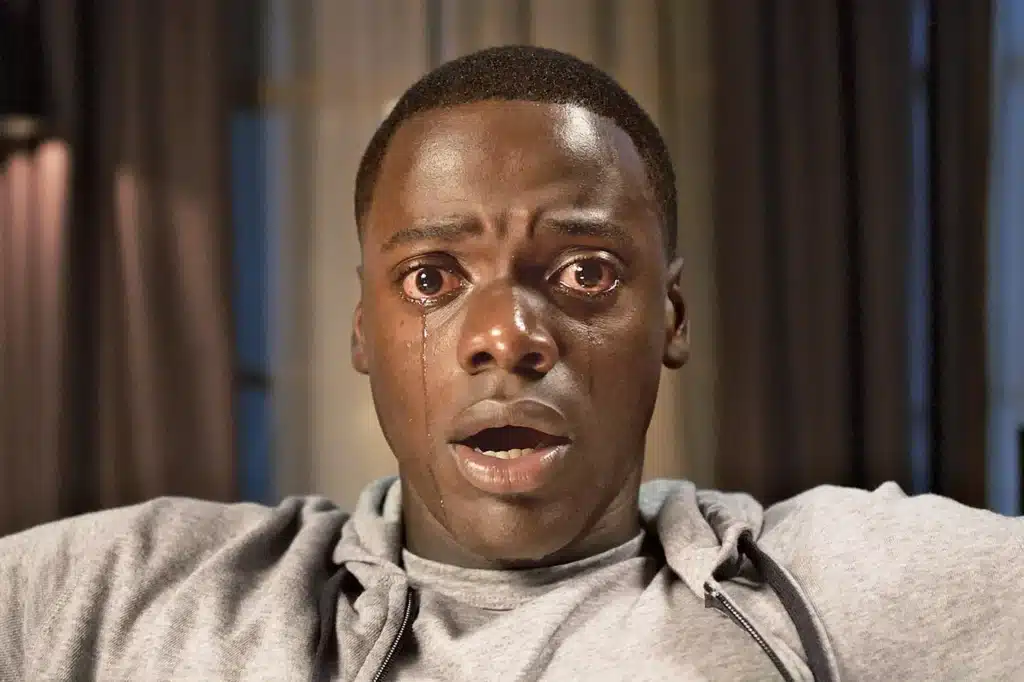
Finding the Right Script Type for Your Story
You have a great idea for a film — but before you start writing, you need to decide what kind of script you’re going to write. Should it be a full-length feature film? A short film? Or maybe a documentary? Each format has its own structure, challenges, and creative advantages, and the choice you make will determine how your story unfolds on screen.
In this guide, we’ll explore the three primary types of scripts — feature films, documentaries, and short films — examining their unique qualities, storytelling approaches, and what makes certain films in these categories stand out. By the end, you’ll have a better understanding of which format best suits your story.
Ready to figure it out? Let’s go!
Try Out Celtx’s FREE Script Editor Here
Feature Film Scripts: Expanding a Story for the Big Screen
A feature film script is what most people think of when they imagine screenwriting. These are the full-length screenplays that become the movies we see in theaters and on streaming platforms, ranging from Forrest Gump to Die Hard to Pulp Fiction.
What makes a film a “feature” film?
A feature film script is a long-form screenplay designed for a full-length movie, typically ranging from 80 to 120 pages, corresponding to around 90 minutes to two hours of screen time. These scripts follow structured narratives, often relying on the three-act or five-act structure to keep audiences engaged over a longer runtime.
Structure and Length
Because feature film scripts are long-form narratives (as we said above, they typically range between 80-120 pages, with one page roughly equating to one minute of screen time), they need a strong structure to keep the audience engaged. Most follow the three-act structure:
- Act One: Introduces the world, characters, and conflict, leading to an inciting incident that drives the story forward.
- Act Two: The longest section, where stakes rise, conflicts deepen, and characters face major obstacles.
- Act Three: The climax and resolution, where the protagonist either achieves or fails in their goal.
However, not all screenwriters strictly follow this structure. Filmmaker Werner Herzog has been openly critical of the three-act model, arguing that it enforces unnecessary constraints on storytelling.
Some writers explore alternatives like the five-act structure, which provides additional beats for pacing and development. (Check out our blog on the five-act structure to see if it might work for your script!)
The key takeaway? Structure should be a guide, not a limitation — it’s there to help you build a strong foundation for your story, not box you in.
What Makes a Great Feature Film?
A strong feature film script needs a compelling central character, a well-developed plot, and enough depth to sustain its length. Great feature films don’t just tell a story — they create an immersive experience.
Take Everything Everywhere All at Once, for example. This film, written and directed by Daniel Kwan and Daniel Scheinert, is a masterclass in balancing emotional depth with high-concept storytelling. On the surface, it’s a multiversal action-comedy, but at its core, it’s a deeply personal story about family, identity, and regret. The screenplay thrives because it maintains a clear emotional throughline, even while jumping between absurdist humor, intense action, and philosophical musings.

Another example is Get Out, written and directed by Jordan Peele. This film reinvents the horror genre by infusing it with social commentary, subverting audience expectations while maintaining tension. Peele’s screenplay is tightly structured, with every scene serving a purpose in both advancing the plot and reinforcing the film’s central themes.

Both of these films stand out because they balance entertainment with deeper meaning. Their scripts don’t just follow a formula — they use structure as a foundation while delivering something fresh and emotionally resonant.
How to Write a Good Story (11 Tips from an Actual Writer)
Challenges of Writing a Feature Film Script
One of the biggest challenges of writing a feature film script is maintaining engagement over an extended runtime. Unlike short films, where every second counts, features require pacing that allows characters and conflicts to develop naturally. Writers must ensure that their story remains compelling from beginning to end, avoiding unnecessary filler or slow sections.
Another challenge is managing subplots. Feature films often contain secondary storylines that enrich the main plot, but these must be handled carefully to avoid distracting from the primary narrative. Successful screenwriters weave subplots seamlessly into the main story, ensuring that every element contributes to the film’s overall message.
How Celtx Helps Feature Film Writers
Celtx provides tools that make structuring and refining a feature film script more manageable. With industry-standard formatting, story development tools, and collaboration features, writers can streamline the process from initial concept to final draft. Celtx also offers outlining and beat-sheet tools to help writers break their stories into manageable sections, ensuring their screenplay maintains momentum throughout.

Documentary Script
A documentary script differs from fictional scripts because it’s rooted in real-life events, people, and narratives. These scripts serve as blueprints for non-fiction films, whether they’re investigative pieces, historical retellings, or deeply personal stories.
Writing Process
Unlike feature film scripts, documentary scripts are often written after filming begins. Instead of writing a pre-determined plot, documentarians:
- Conduct extensive research and interviews.
- Gather footage and real-world evidence.
- Structure the film’s story arc around what they’ve captured.
The script then weaves narration, interviews, and visuals into a cohesive narrative. Ken Burns, a legendary documentary filmmaker, emphasizes that facts should form the foundation of any documentary, allowing emotional and interpretive elements to emerge naturally.
Related Celtx Reading: How to Write a Documentary Script: A Step-by-Step Guide

What Makes a Documentary Script Effective?
A strong documentary script balances factual accuracy with emotional storytelling. Won’t You Be My Neighbor?, for example, tells the story of Fred Rogers through archival footage and interviews, structuring its narrative to highlight his philosophy and cultural impact. 13th by Ava DuVernay uses a tightly constructed argument to explore systemic issues, making every scene purposeful in building its case.

How Celtx Can Help: Celtx provides research and organization tools that help documentary writers compile interview notes, footage logs, and scene sequences efficiently.
Start organizing your documentary script with Celtx script writing software today.
Short Film Script
Short film scripts require precise storytelling.
With a typical length of 5-40 pages (most falling between 15-20), a short film script must establish characters, stakes, and themes quickly while still delivering a satisfying arc.
Challenges of Writing a Short Film
Short films can be even harder to write than feature films because every second counts. There’s little room for unnecessary exposition or filler. Instead, writers must:
- Deliver an impactful resolution within a brief runtime.
- Start with a strong, compelling hook.
- Focus on a single, well-defined concept or conflict.
- Develop characters efficiently through action and dialogue rather than long backstories.

What Makes a Short Film Script Exceptional?
Some of the most memorable short films use creative storytelling methods to leave a lasting impression. Pixar’s Bao, for instance, tells a deeply emotional story in under 10 minutes, using visual storytelling instead of dialogue. Whiplash, before becoming a feature, started as an intense short that captured its protagonist’s obsession with perfection in just a few gripping minutes.

How Celtx Can Help: Celtx’ script writing software offers custom writing goals, allowing you to track your page count and progress. This feature helps ensure you stay within your desired length while refining your script efficiently.
Choosing the Right Script Type for Your Story
There is no universal rule for which script format is best for a particular story. Many projects evolve as they are written — what starts as a short might expand into a feature, or a feature might work better as a documentary. Every story idea presents unique opportunities and challenges.
Before you start writing, consider:
- Scope: Is this story best suited for a full-length feature, or can it be told powerfully in a short film?
- Format: Does your idea require a scripted narrative, or would it work better as a documentary?
- Structure: Would a three-act structure strengthen your story, or does a five-act or unconventional approach better serve your vision?
Understanding these elements will help you shape your script from the start, setting it up for success.
Final Thoughts: Trusting the Process
Here’s the thing: while structure is an important piece of the puzzle, the truth is that every story has its own journey. The key is understanding structure while also trusting your instincts as a storyteller if you find that specific structure isn’t working for your story.
No matter what type of script you choose, Celtx is here to support your creative process with tools designed to help you bring your vision to life.

Learn more about screenwriting and the film industry with these articles:
- How to Write a Short Film (Top 9 Tips from a Script Writer)
- Executive Producer vs Producer | 8 Key Differences in Filmmaking
- How to End a Screenplay (A List of 21 Different Ways)
